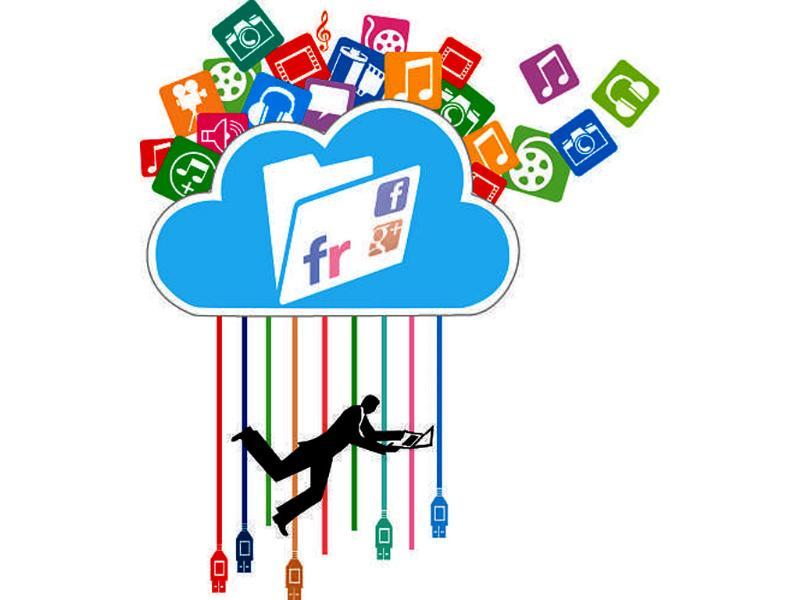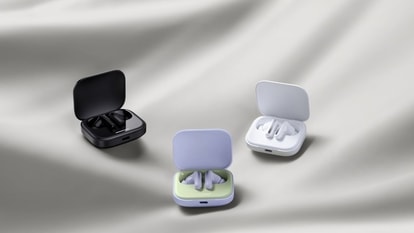A store room in the cloud
Though hard disks are getting heavier on memory, it may make sense to store your data on Net servers. This is particularly true for those who have loads of pictures and videos. Gagandeep Singh Sapra reports.


Though hard disks are getting heavier on memory, it may make sense to store your data on Net servers. This is particularly true for those who have loads of pictures and videos.
It seems it was just yesterday that Seagate announced its first 1GB Hard Disk Drive (HDD), prompting one geek to wonder why anyone would need a whole gigabyte of storage space.
Little did he know that pretty soon, GBs would be passé and terabytes would be the order of the day. With Seagate's latest launch, a 4TB HDD, you are unlikely to run out of storage space in a hurry!
While carrying a pen drive or a hard drive seems easy, in an increasingly mobile world, doing things out of the airport lounge or a friend's home are common and it makes sense to access what you want from the Internet, or "the cloud" seems a better idea.
This is more so as videos and pictures hog a lot of memory and sharing of pictures on social media sites turns more common rather than emails.


We examine a few options that may help you.
Flickr: [www.flickr.com]
Photographers use the Flickr service owned by Yahoo to share their work and even licence and sell their work, but late in May, Flickr announced 1 TB (yes, a full terabyte) of free storage space for its users.
Since Flickr is designed for photographers, it stores all your pictures in full resolution, and does not scale them down like the others discussed here. You can download the free Flickr app for Android and iPhone, and use it to upload your photos to Flickr.
Or you can go to www.flickr.com from your PC and work from there. The account is free, with great options for creating and managing albums, tags, and other photo-sharing features.
There are limitations: Flickr works only for images. You have to share your pictures publicly, with no limited-circle sharing options. And there is no iPad client as yet.
Google+ : [http://www.google.com/plus]
Google's social media platform has not really been a resounding success so far, but it does offer unlimited storage of photos --- as long as each one is limited to 2 megapixels in size.
But sizes down images to what it calls standard size. On the other hand, Google lets you choose which images to share, and with whom.


It has clients for both Android and iOS platforms, and integrates with Google Apps and Gmail. And your storage is not limited to just photos or videos.
Google lets you store full resolution images and videos, too, but that eats into your free Google Drive space, which is currently limited to 15GB. You can expand that to 16 TB, if you pay $799.99 (a monstrous ₹ 47,000, approximately) per month.
Facebook: [http://www.facebook.com]
What? Facebook? Yes indeed. Facebook lets you set up as many albums as you like, and you don't even need to share them with anybody.
The photos are downscaled (sized down) for the Web, and you will not get access to your full resolution photos from its site, but the storage space is unlimited.
Carbonite: [www.carbonite.com]
The best options usually don't come for free. Carbonite costs $59 (about ₹ 3,400) a year for unlimited storage space. Sadly, it only works with one computer.
But the advantages make up for this: Carbonite automatically backs up everything you create on your PC to the cloud server, and offers a mobile client for iOS, Android and even BlackBerry.
There is also a Web version. Set it up on your computer, and you can access your files wherever you are, using your mobile device.
The downside is that the app allows only downloads, not uploads. On the other hand, all data is backed up, and if something happens to your computer hard disk and all data is lost, Carbonite also offers data recovery.
Dropbox: [www.dropbox.com]
We can't walk away without mentioning Dropbox. It gives 2GB storage free, beyond which you need to pay, with 100GB, 200GB and 500GB packages that begin at $9.99 a month (₹ 600 approximately).
Expensive, compared to the others here, but it offers a well-integrated search for folder and file names. There is also a business package for 5 users.
Dropbox also offers up to 3 additional gigabytes of free storage if you use your mobile phone to upload files. Its mobile client allows uploading to happen as a background activity on the Apple iOS.
Primarily designed to store all types of files and share them universally — whether or not the other person is on dropbox — the utility offers thumbnail views of your files, both on mobile devices [iOS, BlackBerry, Android] and the Web.
With the capability to automatically synchronise files across all machines on which it is installed, Dropbox sure is handy, though .
Verdict
The cloud storage that you choose has to be connected to your usage pattern. For just pictures, Flickr wins hands down. It also has the best interface while searching for pictures.
If you don't want to bother about indexing, and are happy with lower resolution images, Google+ and Facebook are okay, though searching for a particular image may take a long, long time.
If you do not upload from your mobile, and create a lot of content, Carbonite maybe the best for you, but if the mobile handset is your preferred medium of operation, Dropbox is the way to go for you. Remember, though, that its storage is the most expensive among these options.
Footnote
Say, you are on a flight with no access to the Internet, or holidaying in a remote resort. It pays on such occasions to have a portable hard drive.
The bottomline: Choose a combination of options that ensure your digital assets are backed up at different locations, and you have access to stuff you need. See what suits you best. Find your own combos!
Catch all the Latest Tech News, Mobile News, Laptop News, Gaming news, Wearables News , How To News, also keep up with us on Whatsapp channel,Twitter, Facebook, Google News, and Instagram. For our latest videos, subscribe to our YouTube channel.


























